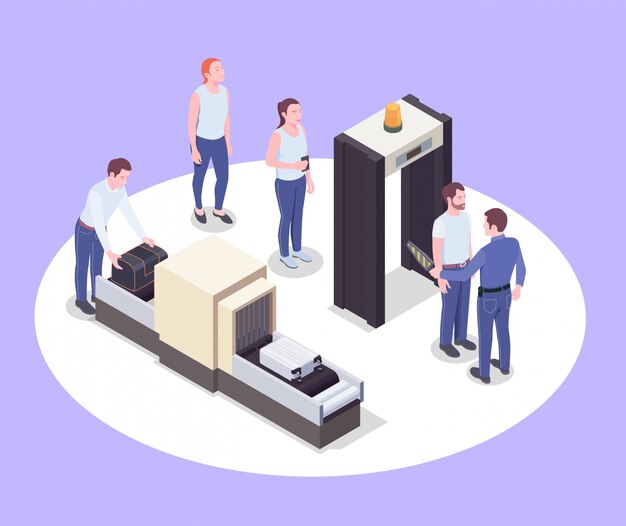
Efficient customer service is critical for businesses to thrive in today’s fast-paced world. One of the most effective tools for achieving this is the Queue Management System (QMS). In Pakistan, cities like Islamabad are leading the way in adopting advanced queue management solutions to enhance customer experiences and streamline operations. This blog explores the significance, implementation, and benefits of queue management systems across Pakistan, with a focus on Islamabad.
What Is a Queue Management System?
Definition and Purpose
A Queue Management System is a digital solution designed to optimize the flow of customers in service environments. It manages queues by issuing tokens, directing customers to appropriate service counters, and minimizing wait times.
Core Components of a Queue Management System
- Token Issuance: Provides customers with a unique number to secure their place in line.
- Display Units: Screens showing real-time updates about queue status.
- Calling Systems: Alerts customers when it’s their turn.
- Analytics Dashboard: Tracks performance and customer flow.
Benefits of Queue Management Systems
Enhanced Customer Satisfaction
- Reduces waiting times.
- Provides clear communication and updates.
Increased Efficiency
- Automates queue processes.
- Ensures optimal staff utilization.
Data-Driven Insights
- Tracks customer patterns and peak hours.
- Helps businesses make informed decisions.
Scalability
- Tailored solutions for businesses of all sizes.
- Adaptable for various industries, including banking, healthcare, and retail.
Queue Management System in Islamabad
Rising Demand in the Capital
Islamabad, as a hub of business and government activity, has a growing need for efficient customer service solutions. The adoption of Queue Management Systems in Islamabad is transforming how organizations handle customer interactions.
Popular Sectors Using QMS in Islamabad
- Healthcare: Hospitals and clinics use QMS to manage patient appointments and walk-ins effectively.
- Banking: Banks in Islamabad are adopting QMS to streamline teller services and reduce customer wait times.
- Government Offices: Offices handling public services, like passport and NADRA centers, are improving efficiency with QMS solutions.
Queue Management System in Pakistan
Nationwide Adoption
The use of Queue Management Systems in Pakistan is spreading rapidly, driven by the country’s modernization efforts and increased focus on customer satisfaction.
Key Cities Embracing QMS
- Karachi: Pakistan’s largest city is utilizing QMS in malls, hospitals, and banks to manage high customer volumes.
- Lahore: Known for its bustling commercial activity, Lahore has integrated QMS in retail and service industries.
- Islamabad: The capital leads with QMS implementation in both public and private sectors.
Industries Leveraging QMS Across Pakistan
- Healthcare: Enhancing patient care by managing appointments and walk-ins.
- Retail: Streamlining billing and checkout processes.
- Education: Managing student queues during admissions and fee submissions.
- Telecommunication: Improving customer experiences at service centers.
Key Features of an Effective Queue Management System
1. Real-Time Queue Updates
Customers receive live updates about their position in the queue via screens or mobile apps.
2. Multi-Channel Integration
Integrates with online platforms, allowing customers to book appointments and monitor queues remotely.
3. Customization
Tailored solutions to meet the unique needs of businesses across various industries.
4. Reporting and Analytics
Provides insights into service efficiency, peak hours, and staff performance.
Implementation of Queue Management Systems in Pakistan
Steps for Successful Implementation
- Assess Business Needs: Determine the volume of customers and type of service required.
- Choose the Right System: Select a QMS that aligns with your industry and operational goals.
- Train Staff: Ensure employees are well-versed in operating the QMS.
- Monitor Performance: Use analytics to optimize the system and improve customer experiences.
Challenges in Implementation
- Initial costs for setup and integration.
- Resistance to change among staff and customers.
- Need for ongoing maintenance and updates.
Future Trends in Queue Management Systems
1. AI-Powered Solutions
Artificial intelligence will enhance QMS by predicting customer behavior and offering personalized experiences.
2. Mobile Integration
Mobile apps will allow customers to join queues remotely and receive real-time updates.
3. Cloud-Based Systems
Cloud technology will make QMS more accessible and scalable for businesses of all sizes.
4. Contactless Solutions
Driven by health and safety concerns, contactless QMS will become a standard feature.
Conclusion
Queue management systems are revolutionizing customer service in Pakistan, offering businesses a powerful tool to enhance efficiency and customer satisfaction. From Islamabad to Karachi, the adoption of QMS is helping industries meet the growing demands of modern consumers. By implementing advanced technologies and focusing on customer-centric solutions, businesses in Pakistan can stay ahead in an increasingly competitive market.
FAQs
1. What is the purpose of a queue management system?
A queue management system optimizes the flow of customers, reduces wait times, and enhances service efficiency.
2. Why is QMS important for businesses in Islamabad?
In Islamabad, QMS is crucial for managing high customer volumes in sectors like healthcare, banking, and government services.
3. Which industries in Pakistan benefit the most from QMS?
Industries such as healthcare, retail, education, and telecommunication benefit significantly from QMS implementation.
4. What features should I look for in a QMS?
Key features include real-time updates, multi-channel integration, customization, and analytics reporting.
5. How does AI enhance queue management systems?
AI-powered QMS can predict customer behavior, offer personalized experiences, and optimize queue management processes.





Leave a Reply